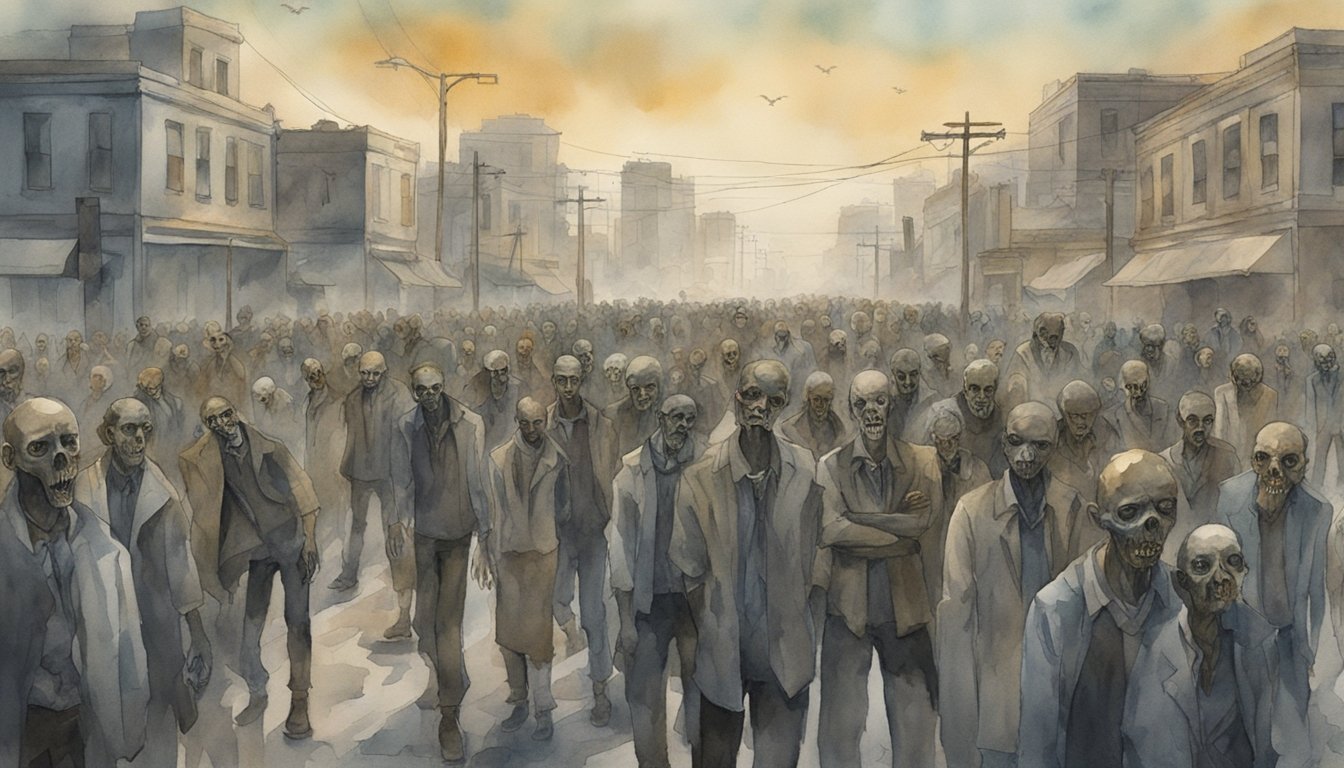Understanding the Zombie Phenomenon
The fascination with zombies encompasses a rich tapestry of cultural tales and scientific inquiry. This section delves into the origins of zombie folklore and their representation in science and nature.
Historical and Cultural Origins
Zombies have haunted human storytelling for centuries, with their roots deeply embedded in Haitian culture and relgion, specifically within the vodou tradition. A figure known as a “bokor,” often compared to a witch doctor, is said to resurrect the dead, creating mindless servants referred to as “zombis” in Haitian Creole. The narrative took a turn when The Serpent and the Rainbow, a book, documented a case of Haitian zombie named Clairvius Narcisse, who claimed to have been turned into a zombi by a voodoo priest. This case suggested the use of tetrodotoxin, a potent neurotoxin, in creating real-life Haitian zombies.
Haiti’s history with zombies stretches back to its roots in the West African religion of vodou, which amalgamated with elements of Christianity. Notably, the word “zombie” is believed to have come from the Kimbundu term “nzumbe,” which means ghost or spirit. The Haitian zonbi appears in tales and myths, illustrating the population’s grappling with the concept of slavery, identity, and the loss of autonomy.
Science and Zombie-Like Entities
Within the realm of science, entities resembling the traits of zombies have been observed, notably in the form of parasites controlling their hosts. One such example is the parasitic fungus Ophiocordyceps unilateralis, which infects carpenter ants and alters their behavior in a way reminiscent of the mindless, automated actions attributed to zombies. These ants become vehicles for the fungi’s lifecycle, driven to environments that favor the parasite’s growth and dissemination.
Scientists have also taken an interest in the zombie phenomenon, studying the brain and behavior to understand fear and the underlying mechanisms that could lead to zombie-like symptoms. While a true “zombie virus” remains within the realm of fiction, research has suggested that certain diseases can affect the brain, creating symptoms that parallel the classic attributes of zombies, such as aggression and impaired cognitive functions.
The study of real-life cases resembling zombies and scientific explorations into the control of one organism over another illuminates the potent blend of fear and fascination that powers the enduring legend of zombies.
Zombies in Popular Media and Public Perception

Zombies have become a cultural phenomenon, influencing a wide range of media and sparking public dialogue about the boundaries between fiction and potential reality. From movies and television shows to video games and literature, these undead creatures captivate audiences with their eerie presence and thrilling narratives. Some even speculate about scientific or technological advancements that could blur the line between fiction and reality, raising concerns about unexpected threats. As discussions about ai’s impact on our world continue to evolve, some wonder whether artificial intelligence could someday play a role in scenarios reminiscent of zombie fiction.
Iconic Zombie Media and Influences
The portrayal of zombies as reanimated, flesh-eating creatures first took hold in popular culture with films such as George Romero’s Night of the Living Dead. This movie set the precedent for modern zombie characteristics: slow movements, a hunger for human flesh, and a spread of infection through bites. Subsequently, the genre expanded with notable entries like the film adaptation of World War Z and the comic-turned-TV-series The Walking Dead, which explored the collapse of society during a zombie apocalypse. The influence of zombies extends even to music, with Michael Jackson’s Thriller cementing its place in pop culture with its iconic zombie dance sequence.
Public Response and Educational Messages
Interestingly, the zombie concept has transcended entertainment and been utilized for educational purposes. The Centers for Disease Control and Prevention (CDC) launched a zombie preparedness campaign, leveraging the popularity of zombies to engage the public in emergency planning for a range of potential disasters, not just hypothetical zombie outbreaks. This unique approach demonstrates how zombie imagery can serve as an effective tool in public health messaging and preparedness for actual crises, such as pandemics.
Zombie Imagery in Modern Entertainment
In modern media, the evolution of zombie narratives has led to more diverse and complex portrayals of the undead. Shows like iZombie blend crime-solving with zombie themes, while others seek a more realistic approach, considering scientific plausibility with neurotoxins or parasitic fungi causing zombie-like symptoms. The persistent popularity of zombies in pop culture is evident in the continuous production of movies, TV shows, and video games that showcase a world ravaged by a zombie apocalypse, playing into humanity’s fascination with horror, monsters, and the gruesome reality of a society overrun by the living dead.

